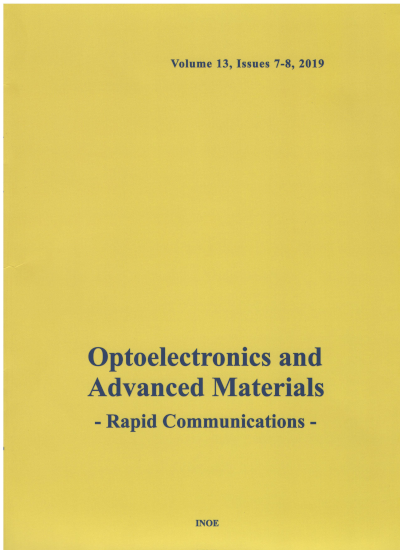Abstract
Bismuth-based EDF (Bi-EDF) is comprehensively studied as an alternative medium for optical amplification. The bismuth
glass host provides the opportunity to be doped heavily with erbium ions to allow a compact high-power system design. The
proposed methods have resulted in an increase of useable gain bandwidth and output power with minimal noise figure. The
gain spectrum of the Bi-EDF amplifier has a measured amplification bandwidth of 80 nm with a quantum conversion
efficiency of 20% obtained using 1480 nm pumping. This glass host will find more ample applications in the expansion of
Dense Wavelength Division Multiplexing (DWDM) accommodating more channels in support of ever-increasing data traffic.
Keywords
Wavelength-Division-Multiplexed (WDM), Erbium-doped fibre amplifier, Bismuthate glass, Gain bandwidth.
Citation
N. TAMCHEK, S. W. HARUN, W. Y. CHONG, H. AHMAD, Study on bismuth-based erbium-doped fiber for optical amplification, Optoelectronics and Advanced Materials - Rapid Communications, 3, 1, January 2009, pp.24-28 (2009).
Submitted at: Dec. 4, 2008
Accepted at: Jan. 21, 2009
